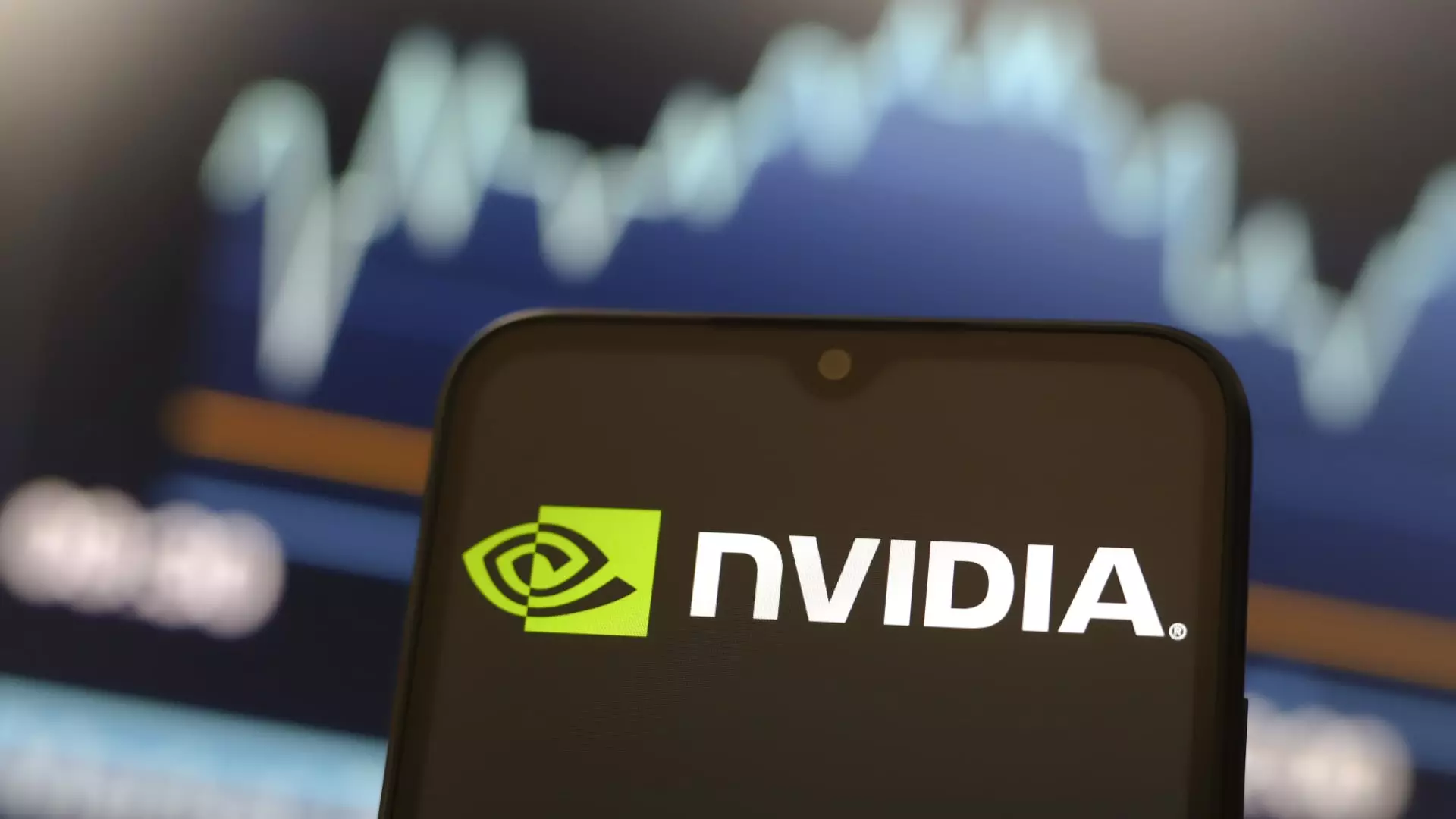Nvidia, once the undisputed leader in the AI chip market, is currently facing turbulence as its shares appear to be correcting amidst an otherwise bullish Nasdaq Composite. Throughout 2023, Nvidia’s stock has experienced an extraordinary surge, boasting a remarkable 166% increase, primarily due to soaring interest in artificial intelligence and supportive demand for their graphics processing units (GPUs). Yet, December has not been kind to the tech leader, as the stock has slipped 4.5% in the month, marking a notable shift in market sentiment.
As of recent trading sessions, Nvidia’s stock has officially entered correction territory, with prices hovering approximately 11% below the peak it reached just a month ago. Such a significant dip raises questions about investor sentiment and the future trajectory of the stock, particularly in light of the broader market’s upward trend. A market correction is frequently defined as a decline of 10% or more from recent highs, which places Nvidia in a precarious position.
Keith Lerner, co-chief investment officer at Truist, underscores the necessity of Nvidia’s technology in the market landscape: “You need Nvidia, and you need their chips for infrastructure.” However, recent developments indicate that investors are also turning their attention toward other companies, suggesting a shifting focus within the so-called “Magnificent Seven” stocks. This shift may imply that despite Nvidia’s solid foundations, alternatives are beginning to capture investor interest, potentially undermining Nvidia’s once strong grip on the market.
This period of underperformance could signal that Wall Street is engaging in a process of profit-taking. Following a stellar performance, it is not uncommon for investors to reassess their positions, particularly when other contenders in the semiconductor space, like Broadcom, are gaining significant traction. Broadcom’s remarkable 11% surge during the same trading sessions where Nvidia faltered highlights the competitive dynamics at play in the semiconductor industry.
The semiconductor market is rich with activity, as seen in Broadcom’s recent earnings report, which has reinvigorated interest and investment in the company, pushing its market capitalization above $1 trillion. Furthermore, other semiconductor companies like Micron Technology, Marvell Technology, and Lam Research are showing resilience and growth, even as Nvidia grapples with its own challenges. Such competitive performances reflect a broader shift in the market, underscoring that even giants like Nvidia can find themselves under pressure.
Roth MKM has identified critical price levels for Nvidia, suggesting that the $125 to $130 range represents a vital area for the stock and the greater market. Should the stock continue on its current trajectory, it may not only face increased selling pressure but could also serve as an indicator for potential market corrections among other tech stocks.
In the rapidly evolving realm of AI, Nvidia’s early leadership has been a double-edged sword; while it has garnered a massive following, it has also attracted fierce competition. The surge in data center demand since the introduction of platforms like ChatGPT has been a boon for Nvidia. However, as competitors begin to leverage similar technology, the stakes have increased significantly.
Looking forward, Nvidia’s ability to maintain its market position will likely depend on several factors, including its innovation pipeline, the competitive landscape, and how effectively it can adapt to market demands. Investors must keep a keen eye not only on Nvidia’s short-term performance but also on its long-term strategies amidst growing competition and changing consumer behaviors.
The recent downturn in Nvidia’s stock serves as a reminder of the volatility inherent in tech markets and the dynamic nature of investor sentiment. While excitement around AI continues to drive market enthusiasm, it’s crucial for stakeholders to critically evaluate their investment positions. Nvidia’s current struggle highlights the importance of diversification and vigilance in an ever-evolving landscape where change is the only constant. The coming weeks will be vital for Nvidia, as it seeks to regain confidence from investors and reinforce its leadership in the AI chip sector amidst intensifying competition.

